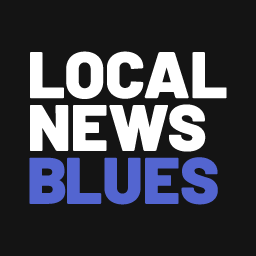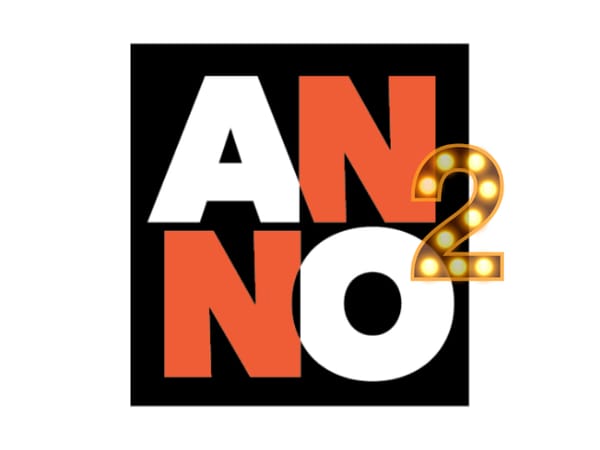What Ezra Klein Got Wrong Today
We have resources and opportunities the New York Times never will.

By Alice Dreger
Here we go again. A big-name journalist bemoans the loss of another favorite national publication, reads off the death rolls like it’s morning in medieval Florence, and then throws off a stat about American newspapers shutting down at an alarming rate, concluding maybe you can survive as a blogger on Substack, but you can’t survive as a small investigative news outlet.
In this case, it’s Ezra Klein writing in the New York Times, grieving the loss of Pitchfork, an online music magazine.
Let’s move past the whacked headline – “I Am Going to Miss Pitchfork, but That’s Only Half the Problem,” as if the loss of one music magazine is equal to the massive sagging of the whole investigative journalistic endeavor – and look first at what Klein gets right:
“The Times can be as competitive in California as it is in New York, and it can make a real run internationally, too. But a global market creates a Winner-Takes-More dynamic. Most people will subscribe to only one news outlet, if that. And they will pick the subscription that delivers the most value. The more subscribers that market leader gets, the more money and reach it has to attract the best staff and expand its offerings” to things like cooking, games, and other charming diversions from climate disaster, war, and famine.
But here’s where Klein goes wrong: He claims that while individual authors can make a living writing opinions distributed through Substack, local reporting can’t make it in an internet world “built around algorithmic recommendation.”
That deeply pessimistic view of local news in America presumably derives from the Local News Initiative out of Medill, ostensibly tracking the growth of news deserts. I unpacked for you last week why that project’s flyover map is just plain misleading. Since then, local news publishers have been writing in to Local News Blues saying they believe their news organizations are also missing from the map, further suggesting the underlying data is poor.
But besides the fact that the Medill "news desert" data is problematic, there are three things people like Klein need to understand if they want to grasp the present reality of local news.
First, a lot of news teams have figured out how to survive by being lean and mean.
Klein writes that to do local investigative news, you “need to support multiple reporters, editors, copy editors, photo editors, and so on.” You don’t, actually. If you’re serious about bringing sharp, focused, watchdog and investigative news, a small team can knock it out of the park. Take a look at the Austin Bulldog, the Florida Bulldog (no relation), the Harvey World Herald, and Baltimore Witness.
What you’ll see at each of these sites are the same bylines repeated over and over. That's a good thing. While it doesn't mean life at these shops is a breeze, the repetitive bylines are proof that it takes fewer people nowadays to bring great local news. In the digital age, there’s a lot more efficiency in our reporting and collaboration, making it possible for energetic journalists to produce high-quality news at quantities impossible before.
Small teams of pros are finding ways to manage local investigative and watchdog work without the heavy infrastructure of places like the Times. At these serious, nimble shops, people who are mostly editors report part-time, people who are mostly reporters learn how to do hard-nosed editing, and everybody gets schooled on how to shoot and edit photos. Copyeditors are frequently volunteers who happen to be both news junkies and grammar marms.
Second, and related to that last point, here’s the dirty little secret in American local news: Many effective small shops are relying on volunteer labor, including on both the business and editorial sides, to keep expenses far lower than traditional news operations ever could. That’s how they’re keeping the news coming.
At Eden Prairie Local News in Minnesota, retired business consultant Steve Schewe works voluntarily as the CEO and Publisher. Nancy on Norwalk (Connecticut) has also made ends meet thanks to substantial ranks of volunteers, as board member Claire Schoen has documented. For the first seven years I worked at the organization I founded, East Lansing Info (ELi), I took no paycheck. (If you're going to tell me "That's not sustainable," do me a favor and write it on a balloon celebrating ELi's tenth anniversary.)
Finally, as locals, we don’t have to worry as much as the big guys about Google’s algorithms and clicky competitors. Many local organizations find themselves essentially the only game in town, and once they get their audiences connected, they keep them.
It’s true that converting readers to paying subscribers is a tricky maneuver – one we’ll be engaging in future posts. But being on the ground in specific locales gives us certain advantages over places like the Times, which is competing for a roving global mass of (in)attention. We may not give you puzzles and sheet-pan recipes, but you need us to know what happened at city council and school board. You need us to uncover corruption, follow the money, and hold those in power accountable.
I’ve said it before and I’ll say it again: The penthouse types opining about our work as local news producers need to stop imagining our organizations as mini-mes to places like the Times or the Washington Post. Yes, we share the same journalistic values. But we exist in very different market ecosystems and can have relationships with our readers that look nothing like theirs. We have opportunities they never will.
Here’s a thought: Before you declare us dead, come see how we live.
Alice Dreger is a journalist, historian, and the publisher of Local News Blues. She founded East Lansing Info, a nonprofit digital investigative news service, and ran the operation for about ten years. Read more at the Local News Blues contributors page.





